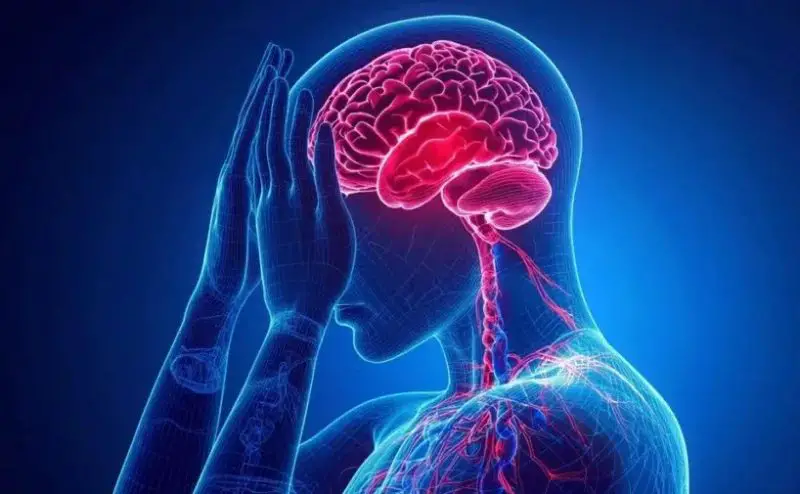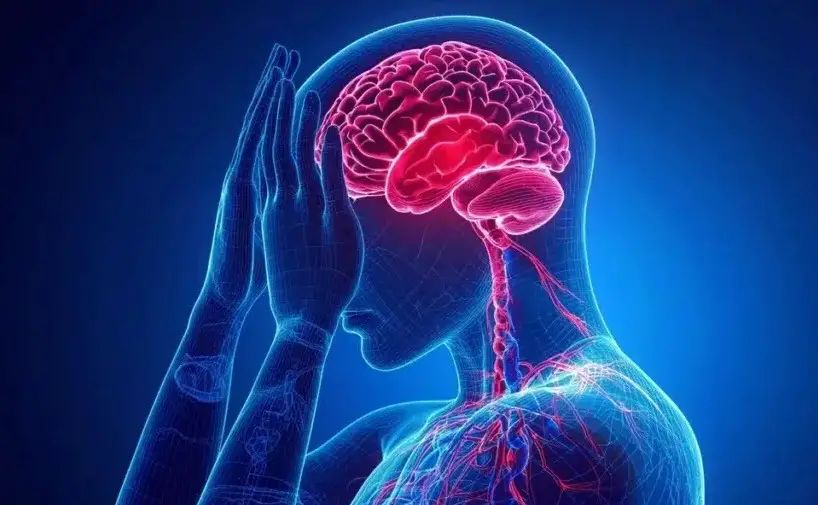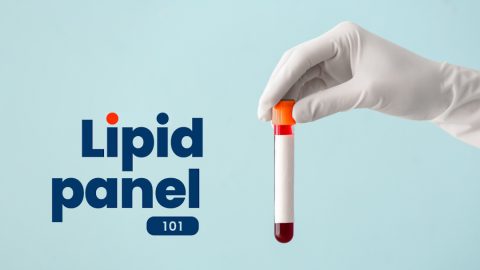A headache caused by high blood pressure is not an ordinary one—it’s a signal that your body is under vascular strain. When blood pressure rises sharply, it increases pressure on the brain’s arteries, leading to pain, throbbing, or a sense of tightness in the head. Unlike tension or sinus headaches, hypertension-related headaches often accompany dizziness, blurred vision, or nausea.
Typically, these headaches are more common in people whose blood pressure exceeds 180/120 mmHg, a condition known as hypertensive crisis. This level of pressure disrupts the normal flow of blood to the brain, which can trigger intense pain and, if untreated, lead to severe complications like stroke or organ damage. Recognizing the signs early is crucial to protect both your health and your life.
High blood pressure headaches often occur at the back of the head, especially in the morning or after physical exertion. The sensation may feel like pounding, pulsing, or a tight band across the scalp. Knowing how to respond instantly can make a significant difference in reducing discomfort and preventing escalation.
What Causes a High Blood Pressure Headache?

The link between elevated blood pressure and headaches lies in the body’s vascular response. When blood pressure surges, blood vessels in the brain constrict to prevent excess flow. This constriction leads to increased pressure within the skull, resulting in pain and tension.
There are several underlying causes for a sudden rise in blood pressure that may lead to headaches:
1. Stress and Emotional Strain
Stress triggers the release of adrenaline and cortisol, hormones that constrict blood vessels and raise blood pressure. Emotional upsets—anger, anxiety, or fear—can cause immediate spikes that manifest as pounding headaches.
2. Poor Diet and Excess Sodium
High salt intake retains water in the bloodstream, increasing volume and arterial pressure. Consuming processed foods, fast foods, and salty snacks over time can make headaches more frequent and severe.
3. Lack of Sleep
Sleep deprivation disrupts hormonal balance and elevates stress levels, both of which contribute to high blood pressure and vascular inflammation. Morning headaches are a common symptom of ongoing sleep problems in hypertensive individuals.
4. Medication Side Effects
Some medications, such as decongestants or certain painkillers, can raise blood pressure. When combined with hypertension, they may intensify the pressure on the brain’s blood vessels, causing headaches.
5. Alcohol and Caffeine
Both alcohol and caffeine can constrict blood vessels temporarily, increasing tension and worsening existing hypertension. This combination often triggers throbbing pain, particularly behind the eyes or temples.
Symptoms That Accompany High Blood Pressure Headaches
A high blood pressure headache rarely appears alone. It’s often accompanied by other warning signs indicating a hypertensive crisis. Recognizing these symptoms can help you act quickly and safely.
- Blurred vision or double vision
- Dizziness or lightheadedness
- Nausea or vomiting
- Shortness of breath
- Chest pain or tightness
- Fatigue or confusion
- Ringing in the ears (tinnitus)
If these symptoms appear together, immediate medical attention is essential. While you can take steps to relieve pain at home, severe cases demand professional treatment to prevent stroke or heart damage.
How to Get Rid of High Blood Pressure Headache Instantly
When a headache strikes due to high blood pressure, the first goal is to calm the vascular system and reduce tension. While there’s no instant cure for hypertension itself, several effective actions can bring fast relief from the pain while helping stabilize your pressure.
1. Sit or Lie Down in a Quiet, Cool Space
The first step is to stop all physical activity and find a quiet place to rest. Sit with your back supported and take slow, deep breaths. Avoid lying completely flat—slightly elevating your head helps reduce pressure inside the skull. Close your eyes and focus on steady breathing to slow your heart rate and oxygenate the brain.
The cool environment plays a role too. Excess heat or humidity can cause blood vessels to dilate further, worsening pain. If possible, use a fan or cool compress to maintain a comfortable temperature.
2. Apply a Cold Compress or Ice Pack
A cold compress helps constrict blood vessels, reducing inflammation and easing pain. Place a cool, damp towel or wrapped ice pack on your forehead or the back of your neck for 10–15 minutes. Avoid applying ice directly to the skin to prevent irritation. The cold temperature numbs the area and can provide immediate relief from the pulsating sensation.
3. Practice Deep Breathing and Relaxation Techniques
High blood pressure headaches often worsen with anxiety. Controlled breathing can lower blood pressure and improve circulation to the brain. Try the 4-7-8 method:
- Inhale slowly for 4 seconds.
- Hold your breath for 7 seconds.
- Exhale completely for 8 seconds.
Repeat several cycles until you feel calmer. Pairing this technique with meditation or soft background music enhances relaxation and pain relief.
4. Stay Hydrated and Avoid Caffeine
Dehydration thickens the blood, increasing resistance in the arteries and worsening hypertension. Drink a full glass of room-temperature water immediately. Avoid coffee, energy drinks, or soda, as caffeine can temporarily raise blood pressure and intensify headache pain.
For additional benefit, herbal teas like chamomile, hibiscus, or ginger can relax blood vessels naturally. Hibiscus tea, in particular, has mild antihypertensive properties that support better blood flow.
5. Massage the Neck and Shoulders
Tension in the neck and shoulder muscles can aggravate a high blood pressure headache. Gently massaging these areas improves blood circulation and releases trapped tension. Focus on circular motions at the base of the skull, then move outward toward the shoulders. Using essential oils like lavender or peppermint can boost relaxation and reduce pain intensity.
6. Take a Warm (Not Hot) Shower
A warm shower promotes vasodilation and helps relax muscles. However, avoid extremely hot water, which may raise blood pressure further. Allow the warm water to flow over your neck and shoulders for several minutes, focusing on breathing deeply. The combination of warmth and steam can ease both mental and physical stress.
7. Monitor Your Blood Pressure
If you have a blood pressure monitor at home, take a reading immediately after your headache begins. This helps determine whether the pain is linked to a dangerous pressure spike. If your reading exceeds 180/120 mmHg, it’s considered a hypertensive emergency. In such cases, do not delay—seek medical attention immediately.
Consistent monitoring also helps you track patterns and identify triggers that lead to sudden pressure increases.
Medical Treatment for High Blood Pressure Headaches
When home remedies fail or blood pressure remains dangerously high, medical care is necessary. Doctors may recommend medication to rapidly reduce your blood pressure while preventing further vascular strain.
1. Fast-Acting Antihypertensive Medications
In emergency settings, drugs such as labetalol, nitroglycerin, or nicardipine are administered intravenously to bring pressure down quickly but safely. These medications work within minutes and are closely monitored by healthcare professionals.
2. Long-Term Blood Pressure Management
For chronic hypertension, oral medications like ACE inhibitors, beta-blockers, diuretics, or calcium channel blockers are prescribed. These not only control blood pressure but also reduce the risk of recurrent headaches and cardiovascular complications.
3. Pain Relief Options
Doctors may also recommend acetaminophen (Tylenol) for headache relief. However, avoid NSAIDs like ibuprofen or naproxen unless approved, as they can raise blood pressure levels in some individuals.
When to Seek Immediate Medical Attention
Not every high blood pressure headache can be managed at home. If the headache is severe, sudden, or accompanied by alarming symptoms, it could indicate a hypertensive crisis or stroke. Go to the emergency room immediately if you experience:
- Chest pain or irregular heartbeat
- Sudden vision loss or confusion
- Difficulty speaking or moving one side of the body
- Persistent nausea or vomiting
- Blood pressure reading above 180/120 mmHg
Prompt treatment can prevent life-threatening complications such as brain hemorrhage, aneurysm rupture, or kidney failure.
Long-Term Strategies to Prevent High Blood Pressure Headaches
While short-term relief is essential, preventing future headaches requires consistent lifestyle changes. Hypertension is often a silent condition, and managing it daily is key to long-term health.
1. Maintain a Balanced, Low-Sodium Diet
Adopt the DASH diet (Dietary Approaches to Stop Hypertension), which emphasizes fruits, vegetables, whole grains, lean protein, and low-fat dairy. Avoid processed foods high in sodium, sugar, and trans fats. Using herbs and spices instead of salt enhances flavor without raising blood pressure.
Potassium-rich foods like bananas, spinach, and avocados help balance sodium levels and improve blood vessel flexibility.
2. Exercise Regularly
Physical activity strengthens the cardiovascular system and lowers blood pressure naturally. Aim for 30 minutes of moderate exercise, such as brisk walking or cycling, five times a week. Regular movement enhances circulation, reduces stress, and minimizes the frequency of hypertensive headaches.
If you’re new to exercise or have severe hypertension, consult your doctor before starting any program to ensure safety.
3. Get Enough Sleep
Poor sleep increases stress hormones and raises blood pressure. Aim for 7–8 hours of quality sleep each night. Establish a consistent bedtime routine, limit screen time before bed, and create a calm sleeping environment. For people with sleep apnea, proper diagnosis and treatment are essential, as the condition can directly elevate blood pressure.
4. Manage Stress Effectively
Chronic stress is a major contributor to hypertension. Techniques like yoga, meditation, mindfulness, or tai chi can lower cortisol levels and help keep blood pressure stable. Regularly practicing relaxation helps prevent the stress-related vascular constriction that leads to headaches.
5. Limit Alcohol and Quit Smoking
Both smoking and excessive alcohol consumption damage blood vessel walls and increase pressure. Reducing intake—or quitting entirely—can significantly improve vascular health and reduce the frequency of headaches related to hypertension.
6. Stay Consistent with Medications
If you’re prescribed antihypertensive medication, take it exactly as directed. Skipping doses or stopping suddenly can cause rebound hypertension, which increases the risk of severe headaches or stroke. Always consult your doctor before making any changes to your medication plan.
Natural Remedies to Support Blood Pressure Control
Alongside medical treatments, certain natural approaches can support healthy blood pressure levels and reduce headache occurrences.
1. Herbal Supplements
Herbs like garlic, hawthorn, and olive leaf extract have been shown to support vascular relaxation and improve circulation. Always consult your healthcare provider before adding supplements, as they may interact with prescription medications.
2. Magnesium and Potassium Intake
These essential minerals help regulate blood pressure by promoting proper muscle and nerve function. Foods such as nuts, seeds, and leafy greens provide natural sources that strengthen cardiovascular balance.
3. Mind-Body Practices
Practices such as deep meditation, aromatherapy, and acupuncture may help reduce both stress and vascular tension. Lavender oil, for example, has calming effects that complement blood pressure management routines.
Frequently Asked Questions
Can a High Blood Pressure Headache Go Away on Its Own?
Mild cases may subside once the blood pressure stabilizes, especially after rest or hydration. However, if your headache persists or worsens, medical evaluation is essential to rule out serious complications.
Is It Safe to Take Painkillers for High Blood Pressure Headaches?
Only use painkillers approved by your doctor. Acetaminophen is usually safe, but NSAIDs should be avoided unless prescribed, as they can elevate blood pressure further.
How Long Does a Hypertension Headache Last?
Depending on the cause and treatment, symptoms can last from a few hours to several days. Persistent headaches should always be investigated by a healthcare professional.
Can Anxiety Cause High Blood Pressure Headaches?
Yes. Anxiety increases heart rate and tightens blood vessels, leading to temporary spikes in blood pressure and subsequent headaches.
What’s the Best Immediate Action During a Hypertensive Headache?
Stop all activity, rest in a quiet environment, take slow deep breaths, drink water, and check your blood pressure. If readings are dangerously high, seek emergency care immediately.
Final Thoughts
Knowing how to get rid of high blood pressure headaches instantly begins with recognizing the signs and responding calmly. Simple steps—resting, hydrating, applying cold compresses, and practicing deep breathing—can offer immediate comfort. But long-term prevention requires addressing the root cause: uncontrolled hypertension.
By adopting a heart-healthy lifestyle, managing stress, and maintaining medical guidance, you can prevent recurrent headaches and protect your overall well-being. Remember, high blood pressure is manageable, and taking action today ensures a healthier tomorrow.
Disclaimer: This article is for informational purposes only and is not a substitute for professional medical advice, diagnosis, or treatment. Always seek the guidance of your physician or qualified healthcare provider with any questions you may have regarding your health or a medical condition. If you experience a severe headache with high blood pressure or related symptoms, seek emergency medical attention immediately.



